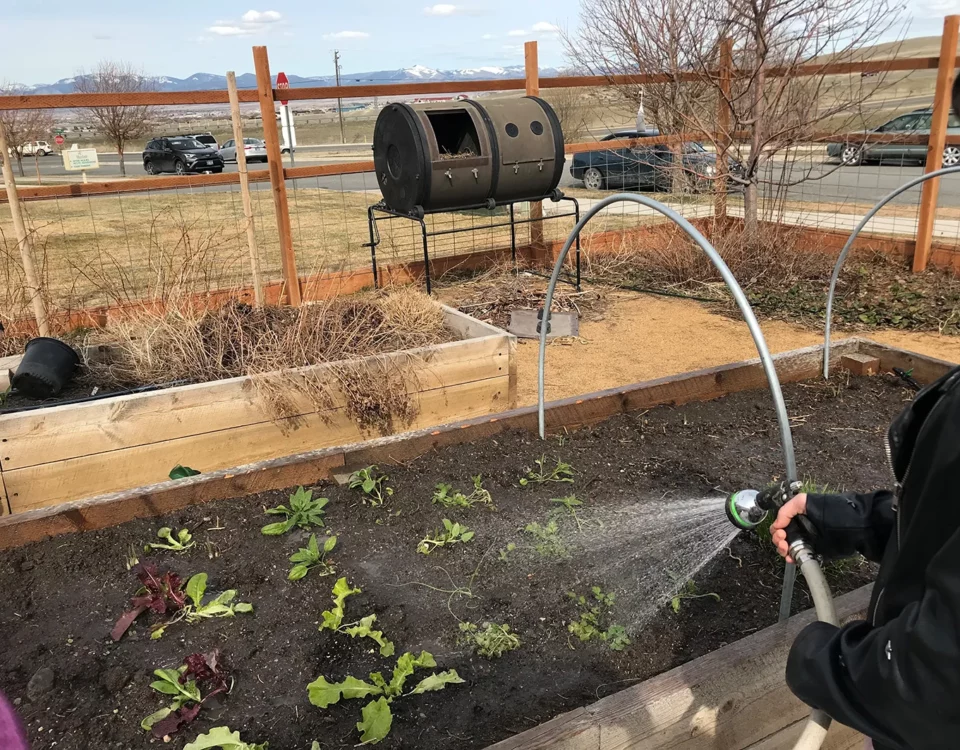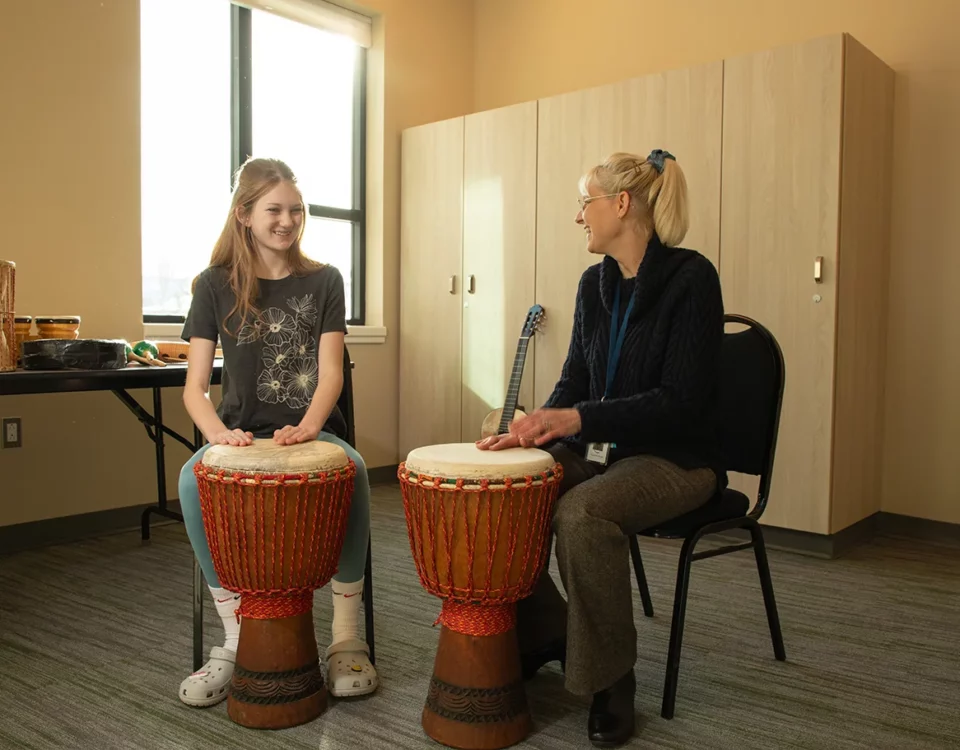
Inspiring Healing through Local Food: Shodair Receives $15.5K Farm Grant
July 22, 2024
School at Shodair: More than a Classroom
January 2, 2025Hereditary Cancer Screenings: Empowering Your Health Through Medical Genetics
This article was written alongside Jaclyn Haven, Shodair’s Chief Administrative Officer of Genetics. To learn more about medical genetic services in your area, head this way.
S hodair is proud to be the leading provider of comprehensive medical genetic services in Montana. Our expert team sees dozens of patients and families each week – conducting routine tests, coordinating care, and guiding them through some of the hardest moments in life. And, even so, we too deeply feel and understand the very real fear and impacts of the dreaded “c” word – cancer.
As a society with an estimated 41 percent lifetime cancer rate, it’s easy to see why. Cancer is uncertain. Its effects are vast and even just talking about the disease can result in feelings of anxiety. Living in this same space of mystery, for many, is the idea of genetics testing. Genetics as a practice can feel ambiguous, unknown, and unrelatable. And yet when it comes to empowering your long-term health, there’s one first step that is more approachable than you might think: hereditary cancer screenings.
Hereditary Cancer Screenings
Hereditary Cancer Screenings are just as they sound – a screening that looks for genetic factors that may increase your risk of hereditary cancers. And, if you’re sitting there thinking that definition cleared up nothing, then you’re not alone. You can rest easy in knowing that a cancer screening actually first starts with a simple conversation, or what we call a genetic counseling visit.
At a genetic counseling visit (which can also take place virtually), a genetic counselor at Shodair will walk through your family history, offer education on genetics, discuss common risk factors, and ultimately empower YOU to determine whether genetic testing is the right next step for you and your family.
- – If no common risk factors are identified in conversation, it’s likely testing will not be recommended and you’ll walk away a little more educated.
- – If it is determined that genetic testing is a good fit, you will have the option to pursue a saliva or blood test, where your results will then be analyzed for inherited cancer risk and presented alongside a roadmap of personal health recommendations.
Who are Candidates?
When it comes to hereditary cancer screenings, candidates are either individuals who have a history of cancer themselves that could be hereditary (see below) or individuals who have a family history of cancer.
- – Common Hereditary Cancers: Breast cancer, ovarian cancer, colon cancer, and pancreatic cancer.
- – Hereditary Risk Factors: Early age at diagnosis, multiple cancers, rare cancers.
Beyond Understanding Risk
We know after decades of research that certain cancers can run in families. That’s why the main goal of hereditary cancer screenings is to help individuals and families better understand their risk for these types of cancers and the options they have to possibly mitigate that risk. And for a lot of families, knowing can be the hardest part. But beginning to learn more about your genetic makeup can have a lifelong impact that goes far beyond understanding risk. A visit with a genetic counselor can help provide a family with:
- – Education on Genetics
- – Supporting Resources
- – Lifetime Cancer Assessment (based on family history; testing not needed)
- – Screening Recommendations (MRI, mammograms, etc.)
- – Family Advocacy & Support
“Our ultimate goal is to keep patients and families as healthy as possible for as long as possible. If we know there’s an increased risk, we can do more.”
Jaclyn Haven
Chief Administrative Officer of Genetics
Take Your Next Step
Whether it’s you or a loved one, walking through cancer can be scary. But learning more about your health and the impact of your genetic makeup truly does not have to be. Shodair Children’s Hospital is now offering genetic counseling visits with a turnaround time of just 1-2 weeks. One of our licensed counselors would love to sit down with you or chat virtually about what steps might be a good fit for your family.
- – Ask your primary care provider for a referral
- – Call our free genetics on-call line at (406) 444-1064
Shodair’s genetic department is home to a state-of-the-art laboratory and the only medical geneticist in the state. Each day, our team aims to provide the unwavering support and dedicated care that Montanans and the Northwest region need and deserve. To learn more about our comprehensive services, visit shodair.org.




